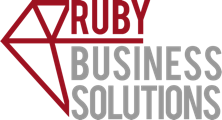Welcome to our blog where we delve into the crucial aspect of expense tracking for Canadian small and medium-sized businesses. As a business owner, managing your expenses efficiently is not just a good practice, it’s a vital part of maintaining a healthy financial landscape. This guide will provide you with practical tips on tracking and categorizing business expenses, emphasizing the importance of keeping detailed receipts and records for tax purposes.
1. Understanding Business Expenses Before diving into tracking, it’s important to understand what qualifies as a business expense. Typically, these are purchases or costs directly related to the operation of your business. This can include office supplies, rent, utilities, and travel expenses. Understanding these categories will help in organizing your expenses more effectively.
2. Tips for Effective Expense Tracking
- Implement a Reliable System: Choose an expense tracking system that suits your business size and needs. This could be a simple spreadsheet or specialized accounting software.
- Regular Updates: Update your expense records regularly. This habit ensures that you don’t miss out on any expenses and makes tax time less stressful.
- Categorize Expenses: Organize your expenses into clear categories (e.g., travel, supplies, utilities). This categorization aids in understanding your spending patterns and simplifies tax filing.
3. The Importance of Maintaining Receipts and Records
- Tax Compliance: Keeping detailed records of your expenses is crucial for tax purposes. In Canada, the Canada Revenue Agency (CRA) requires you to provide evidence of expenses claimed.
- Audit Readiness: In case of an audit, having a well-organized record of receipts can be your best defense.
- Financial Analysis and Budgeting: Detailed records allow for more accurate financial analysis and budgeting. You can identify areas where you might be overspending and adjust accordingly.
4. Digital Solutions for Receipt Management Consider leveraging digital tools to manage your receipts. Many mobile apps can scan and categorize receipts, making it easier to keep track of them. Digitizing receipts also helps in creating backups and reduces physical clutter.
5. Professional Guidance While these tips are a great starting point, professional advice tailored to your specific business needs can be invaluable. Consulting with a bookkeeper or accountant ensures that your expense tracking aligns with Canadian financial regulations and industry best practices.
Efficient expense tracking is more than just a regulatory requirement; it’s a strategic tool that can significantly impact your business’s financial health. By implementing these practices, you’ll not only stay compliant with Canadian tax laws but also gain valuable insights into your business spending, leading to more informed financial decisions.







